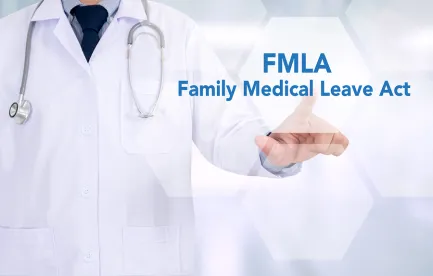On July 16, 2020 the Department of Labor (“DOL”) unveiled its new FMLA forms. As we previously reported, the DOL announced its plan to revamp the forms in August 2019. However, the DOL made further revisions to the August 2019 drafts based on public comments. The new forms can be used to comply with many technical nuances of the FMLA, but, like prior versions, are voluntary.
The new forms are:
WH-380-E Certification of Health Care Provider for Employee’s Serious Health Condition
WH-380-F Certification of Health Care Provider for Family Member’s Serious Health Condition
WH-381 Notice of Eligibility of Rights & Responsibilities
WH-382 Designation Notice
WH-384 Certification of Qualifying Exigency for Military Family Leave
WH-385 Certification for Serious Injury or Illness of Covered Servicemember—for Military Family Leave
WH-385V Certification for Serious Injury or Illness of a Veteran for Military Caregiver Leave
The DOL webpage also features a Q&A section regarding the new forms. Because the forms are voluntary, the DOL reiterates that employers are free to use the old or “expired” forms and to modify the new forms. The DOL cautions, however, that employers may not seek information beyond that specified in the FMLA regulations or refuse a certification that contains all the information needed to determine if the leave qualifies for the FMLA.
The stated purpose of the recent revisions was to make them “easier to understand.” Consistent with this objective, the new forms seek more pointed responses and offer examples and explanations.
Significantly, the new forms limit written responses and reduce the guess work (both for medical providers completing the forms and employers interpreting the responses).”
The new medical certification forms are also likely to temper the amount of information medical providers offer regarding serious health conditions. The prior certification forms invited medical providers to describe medical facts related to the condition, including “symptoms, diagnosis, or any regimen of continuing treatment,” and dedicated several blank lines to respond. The forms now expressly state that this information is not “required,” and note that certain information (e.g., diagnosis) may be restricted by state or local law. The forms offer only a couple of lines to provide specific details.
The minimalist certification forms have pros and cons. It may be easier and faster to complete the new forms. Also, the revisions are likely to curb inconsistent or incomplete responses from medical providers. However, it is unclear how the potential lack of medical information will impact the administration of the leave itself, particularly in cases involving intermittent leave or multiple serious health conditions.
These changes are not the only changes contemplated by the DOL. In addition to the new forms, the DOL published a Request for Information, which solicits feedback on changes employers and employees would like to see in the FMLA regulations “to better effectuate the rights and obligations under the FMLA.” The Request for Information asks for comment on the following topics, but emphasizes that feedback on unrelated FMLA issues is welcome:
-
The definition of “serious health condition,” difficulties regarding the definition of “chronic condition,” and situations in which employers/employees believe the definition of “serious health condition” was over- or under-inclusive.
-
Intermittent leave and reduced schedule leave, and challenges related to the timing of employee requests.
-
The employee notice requirements under the FMLA and whether employers/employees have sufficient understanding of their rights and obligations under the FMLA to effectively communicate.
-
Challenges related to the medical certification process that are not addressed in the revised forms.
-
Whether issues in recent opinion letters should be addressed through the regulatory process.
-
Any specific information or data related to challenges with administering FMLA leave.
The Request for Information presents employers with an opportunity to share the struggles and successes that come along with the FMLA. The DOL is accepting comments through September 15, 2020. For employers who have struggled with FMLA abuse by their employers, the DOL’s Request for Information provides a unique opportunity to have your voice be heard. Jackson Lewis can assist you in submitting comments on these topics.




 />i
/>i

